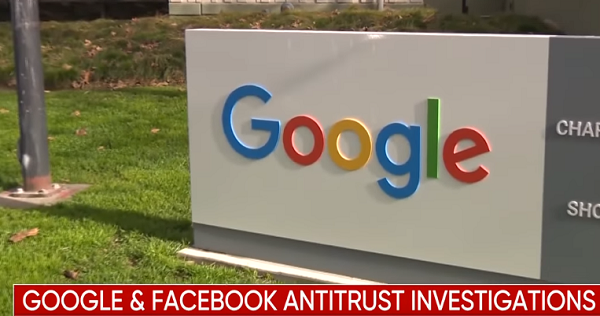
With the complexities surrounding the potential detrimental ramifications of governmental oversight tarnishing the entrepreneurial spirit driving the digital economy, the unprecedented growing pains in the presence of record breaking profits and the exponential increase of infrastructure has unleashed a conundrum among elected officials.
While the innovatively cagey and conniving trio of Google, F***book, and Twitter have all reinforced the disturbing truth that they are three steps ahead of continuously altering the rules of the game in molding a pliable near future into lucrative mountain ranges of capital, the arrogant sloppiness in the poor handling of sensitive data sets off every red flag built into smartphones, self-driving vehicle, and drones beaming back copious amounts of information to the Beijing espionage industrial complex. It’s not a matter of if the federal government and states become involved in forcing a reasonable set of minimum and enforceable standards, but when.
In the wake of a putrid ideological weekend, as Texas Lieutenant Governor and conservative Dan Patrick made headlines with concise and shocking rhetoric admonishing the NRA and supporting background checks on private gun sales, the entire Longhorn state and the nation were in dire need of some positive news. Amazingly, in a rare instance of positive karma, officials in Texas announced their dedicated involvement in investigating the business practices of Google, a refreshing development as the clock ticks towards the late evening hours in ushering in the pending frenzy of the 2020 election.
Currently the Justice Department is researching and evaluating the operations procedures of the larger Silicon Valley enterprises, reports Fox News, and the decree by public servants in Texas to specifically call out and systematically probe Google for any irregularities adds another layer of intrigue to a commerce scenario that has devolved to a level of cumbersome instability rivaling the attempt to shave with a gnarly razor while riding a skateboard through a bustling downtown corridor. The move by officials in Austin sparked a slew of states to join the antitrust investigative efforts.
Of course, the resounding ulterior motive of government in allocating resources and dolling out anti-trust sanctions is to effectively calibrate a specific tax system which covers the multitudinous revenue channels of the digital wonderland. Concerned tax payers and consumers of Google and social media products are in turn temporarily satisfied that accountability is being enforced, and though a fine of $5 billion is pocket change to the powerful corporate institutions, there is a general hope that at least the faint presence of regulatory compliance will eliminate the insufferable custodial issues resulting in periodic massive data breaches. From a public policy point of view, the key in alleviating the opportunity for transgressions to be repeated, is with a delicately balanced approach originated from the private and public sectors in promoting transparency, while still freely allowing the proliferation of innovation. The deliberate bias towards conservative content on the various platforms may never go away entirely, but at least the campaign advertising mess can be cleaned up, as a paper trail identifying the purchaser is accessible to the public, a reality that is already in existence within traditional media.
Unfortunately, leading Democrats have displayed their ineptitude towards applying free market principles throughout the investigation, by clamoring for a good old fashioned trust busting session and the subsequent fragmentation of the big three. The healthy display of extremism provides a constant reminder that certain politicians have no interest in preserving Capitalism, as their collective souls have are owned by the special interest lobby, yet they have no aversion to checking email on an Android device, or mingling with friends and family through a quiet addiction to social media.
As the deservedly scrutinized publicly traded private galactic-sized electronic entities control their own financial destinies in cornering the modern advertising marketplace and share the perception among users as news syndicates, is the extensive and expensive allocation of monetary and investigative resources worth the effort in attempting to regulate an industry that has clearly passed the point of no return? When the dynamics of socioeconomics are variables in a complicated algorithm where there no are no easy answers, the most simple solution is to look no further than the consequences of personal decisions and the freedom that an individual is afforded in overcoming the temptation to dislodge the smartphone from the pocket and indulge in instant gratification. With hope leaning on people capable of resisting the temptation to procrastinate and swipe, a dark and chaotic future looms.
Read the Fox News story here.
This editorial powered by Duckduckgo.com